By Joella Korczak, Seawater Solutions Programme Officer
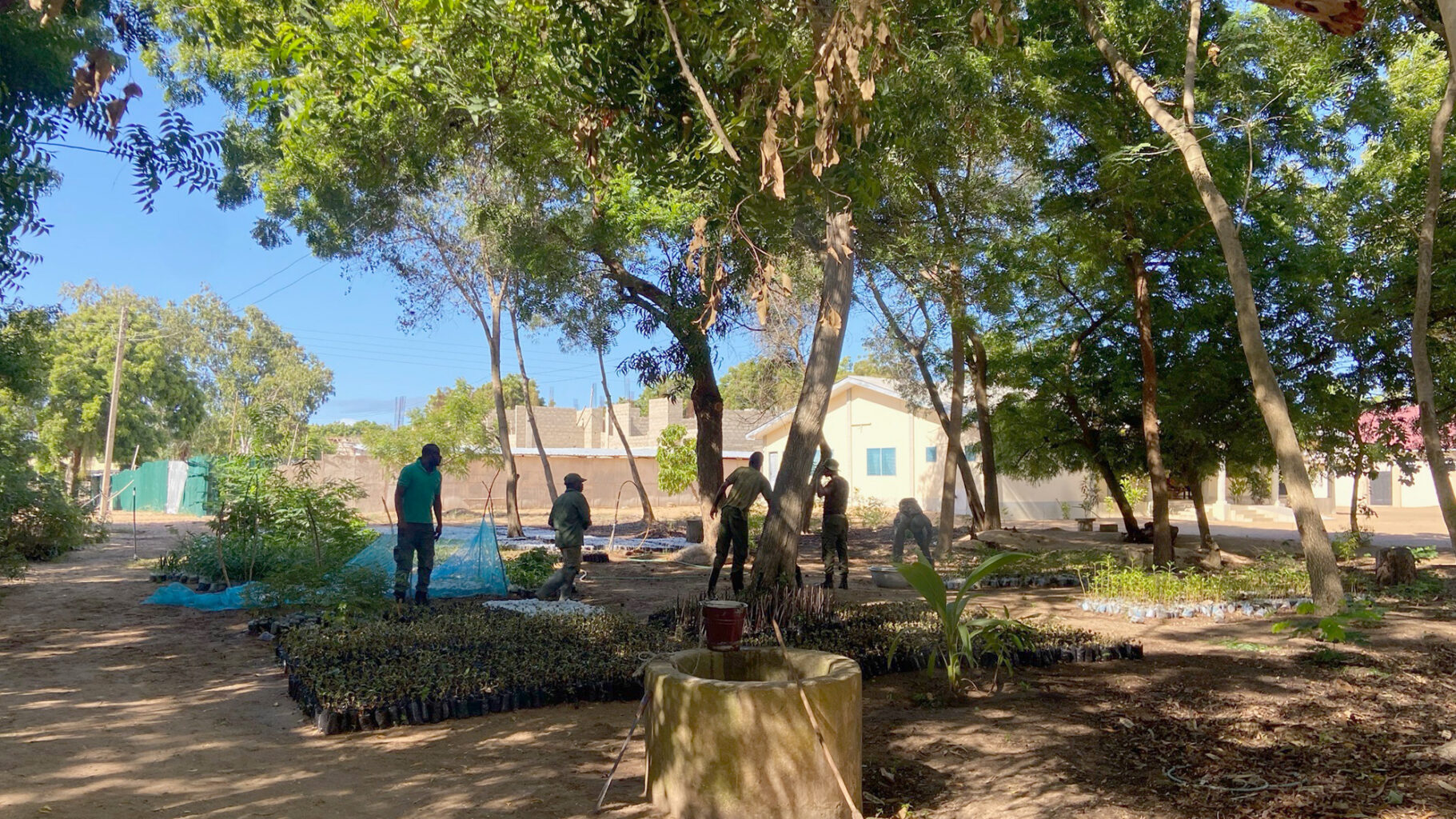
We believe that conservation and reforestation of ecosystems and rural development are a catalyst for each other. Integrating community members and local stakeholders are key for a successful and sustainable project, including factors such as knowledge transfer and empowerment.
While including locals in the process of our projects, they can create a sense of ownership and value for their natural ecosystems.
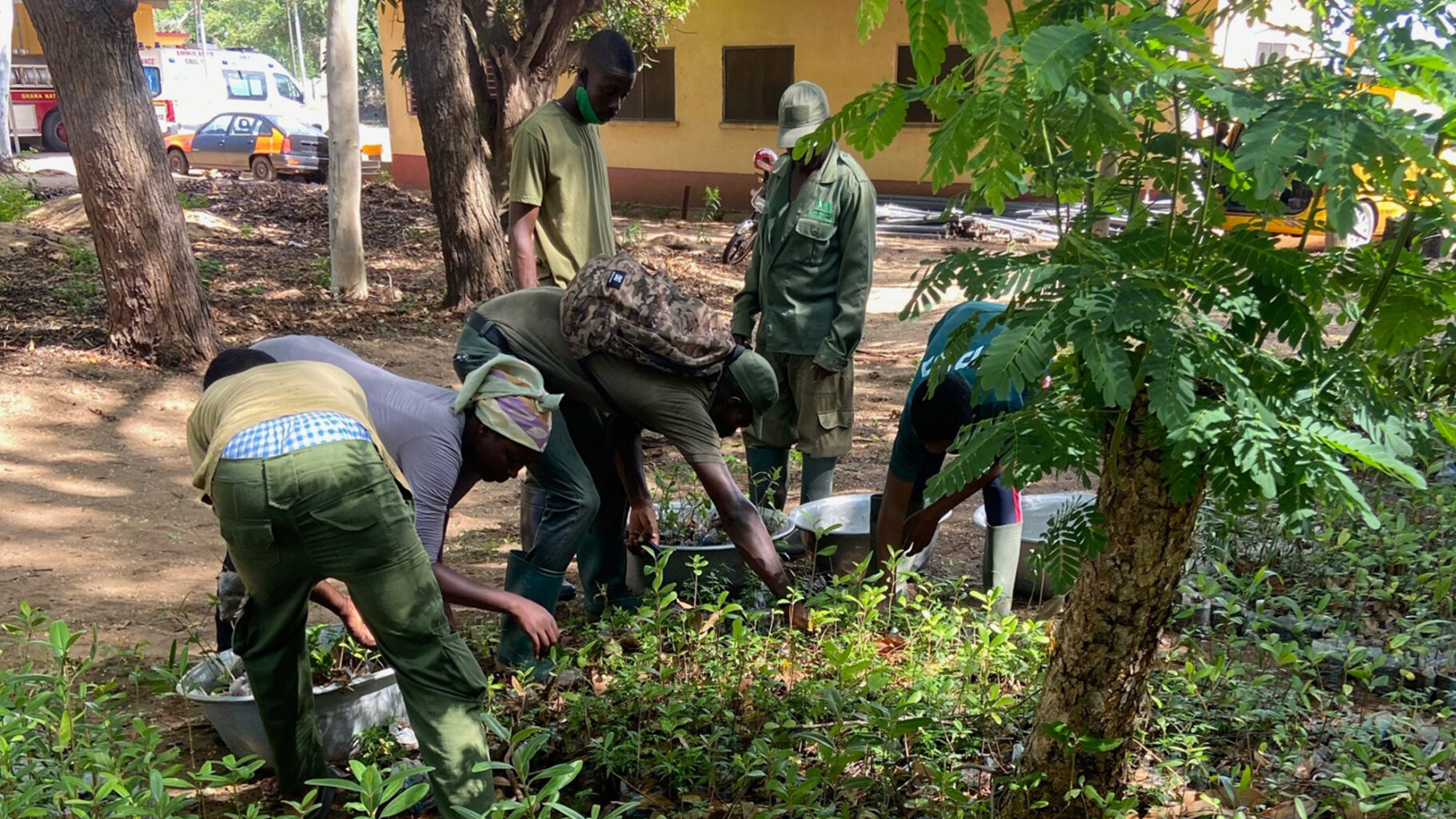
Natural resources management within communities will be valuable for a regenerative environment and the improvement of livelihoods for local communities. For us, learning from stakeholders and community members about their local ecosystems, traditional practices, and knowledge, as well as understanding informal networks and cultural habits is key for an inclusive approach of development and climate resilience.
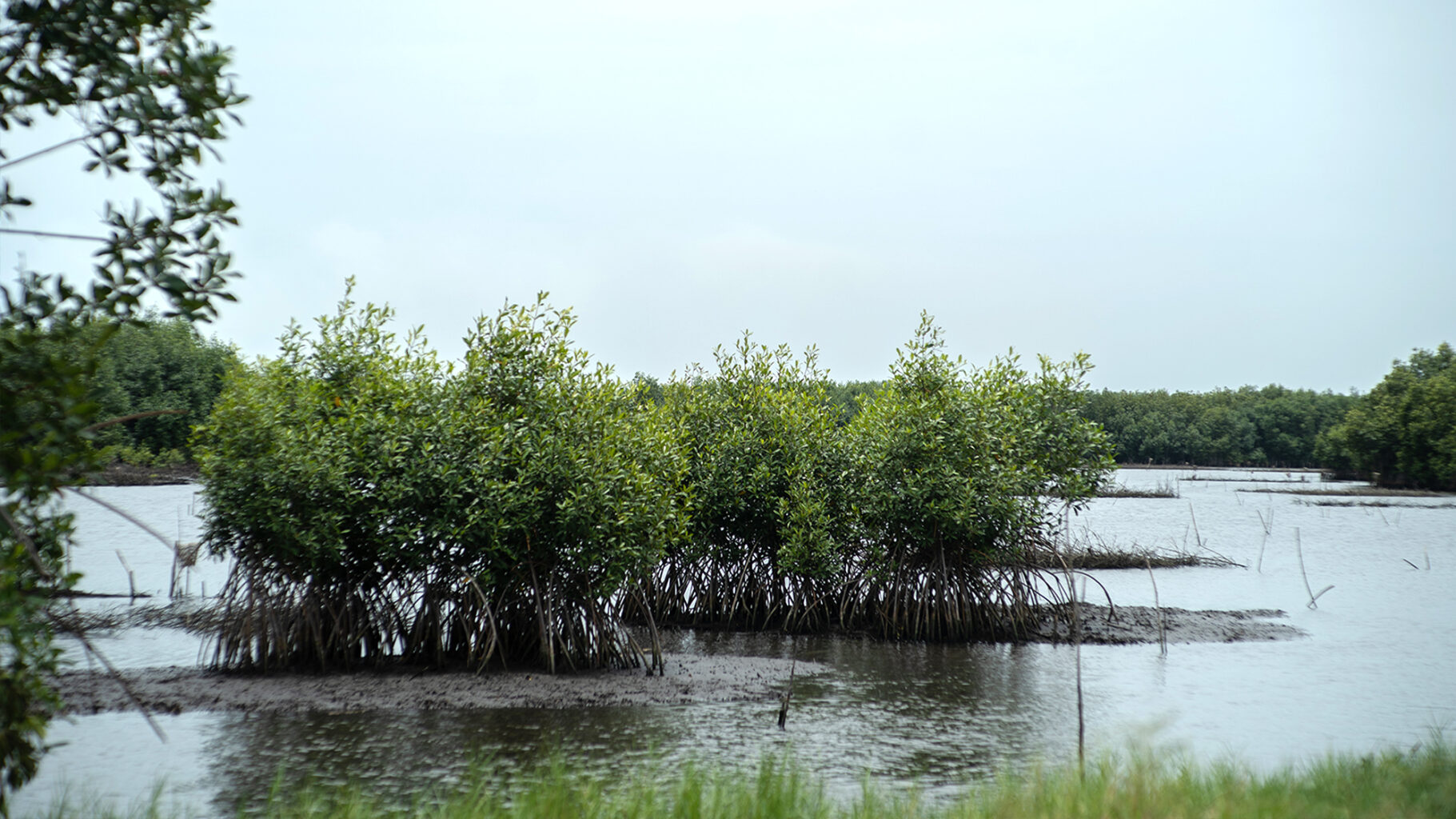
This approach is also implemented in our mangrove reforestation journey. We are working with the Forestry Commission, conservationists, fishermen, community members to help us collect seedlings, nurse them and plant them in the field.
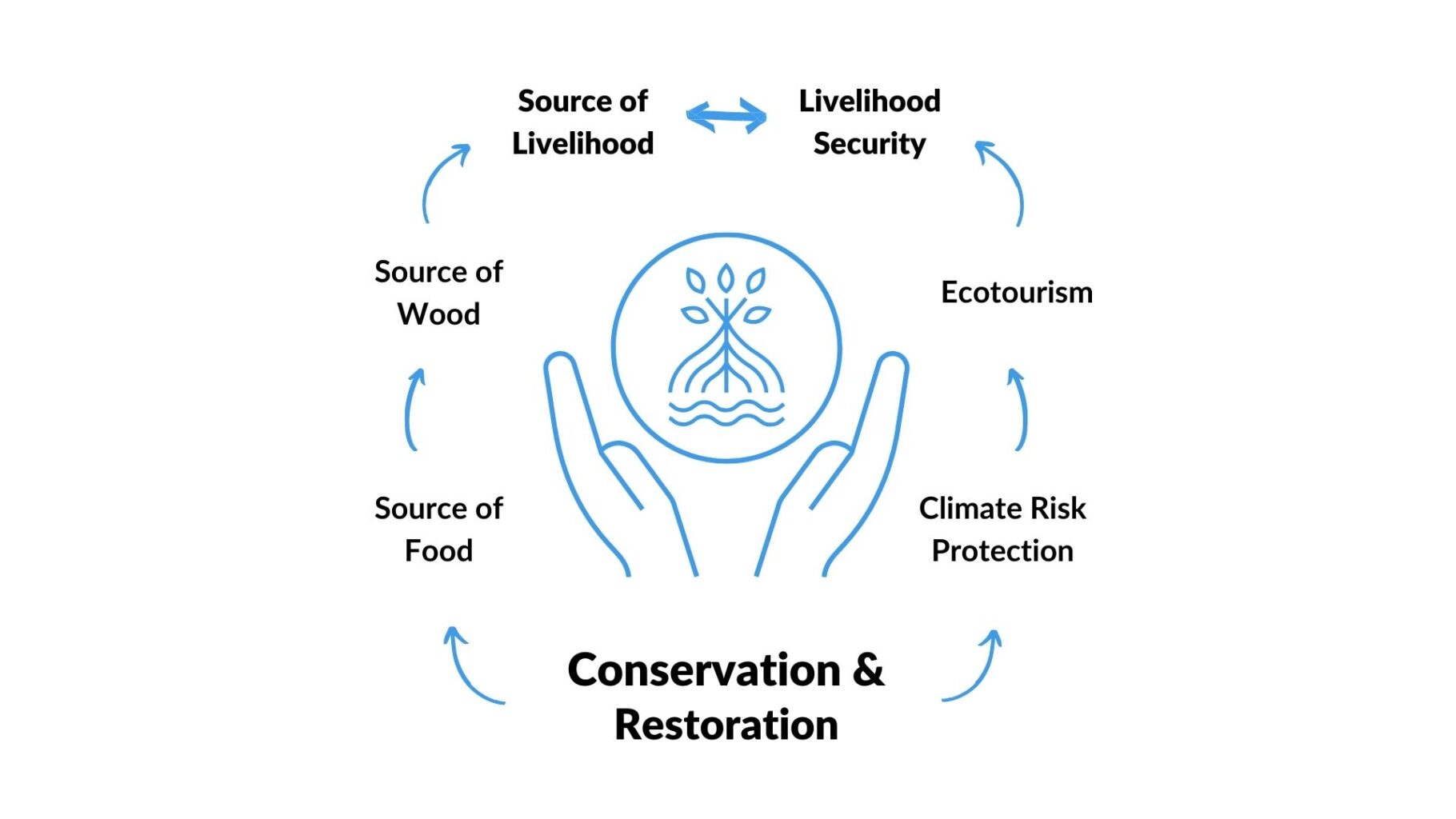
Together with the Forestry Commission, we started trailing our white mangroves in one of our sites. In two days we planted 1.200 seedlings.
We already mobilised about 10 women from the community, who are excited to plant with us!
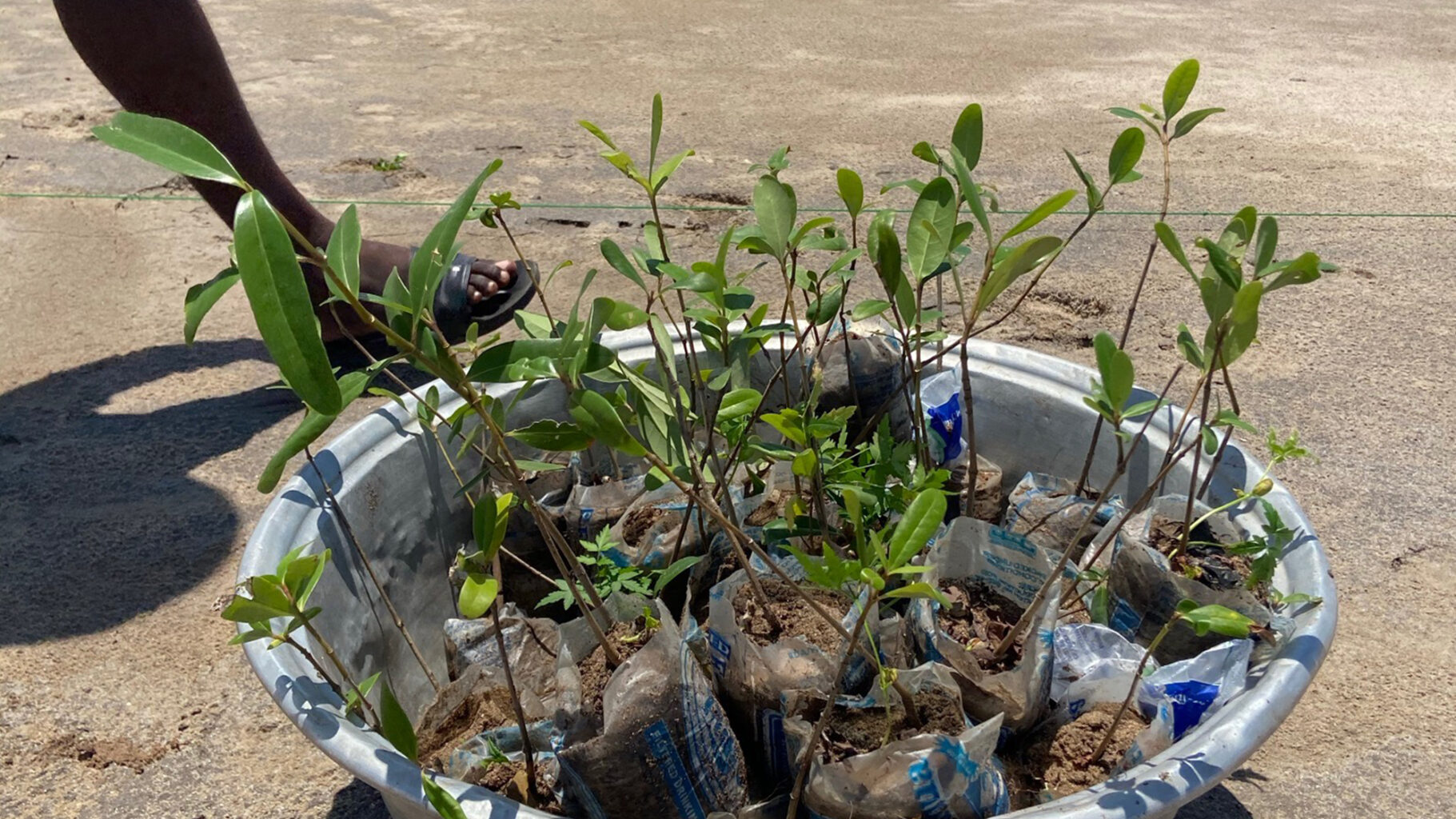
In such a hot country as Ghana, you have to start early if you want to work in the field. Our days in the field start at 5.00 am or 6.00 am to beat the heat.
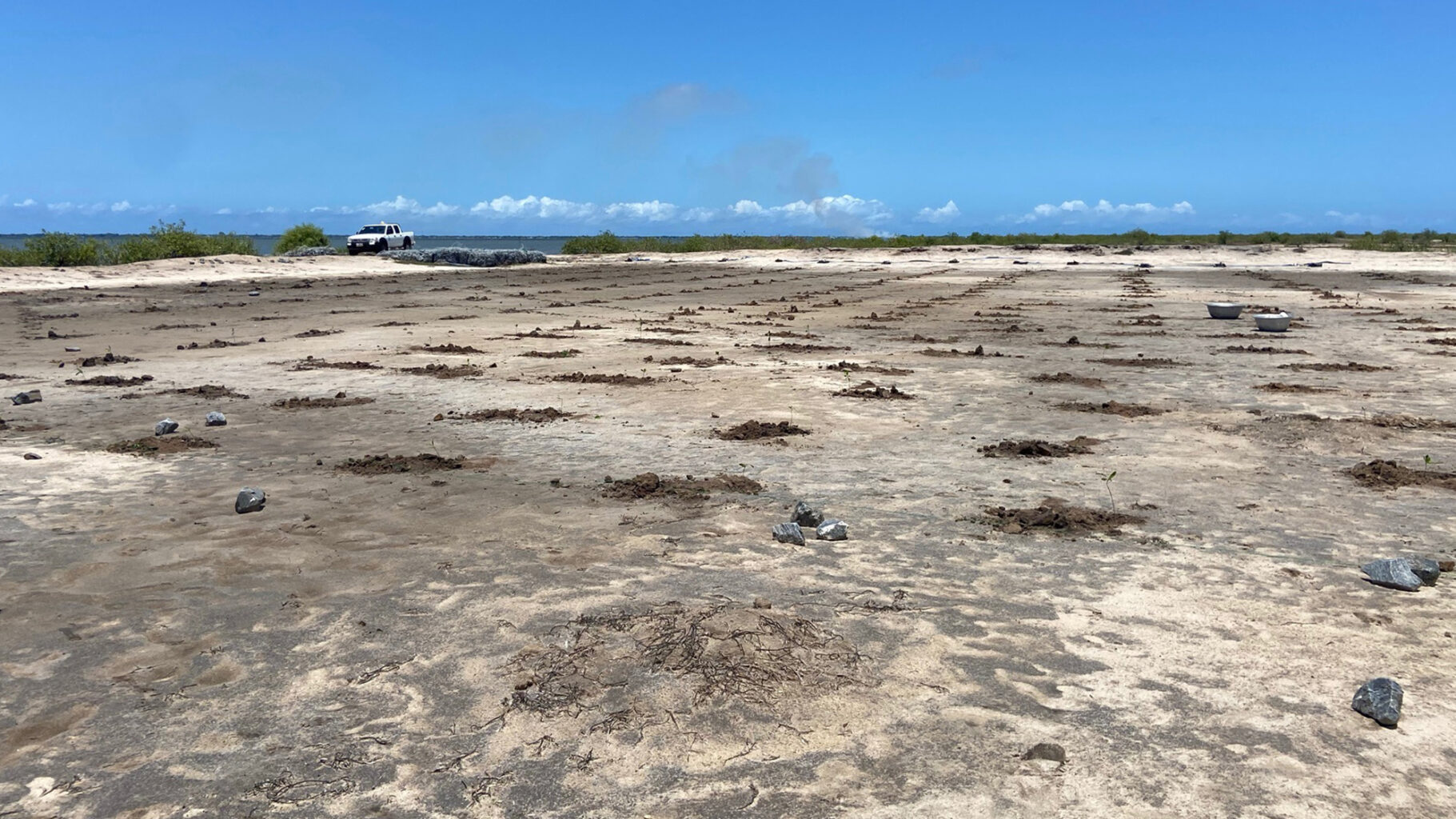
Our trail was important for us to understand the real conditions at the site for the mangroves and how well they can survive with heat, salinity, and drought there.
We are waiting for the rainy season to start until we continue planting, to increase the chances of survival for our seedlings.